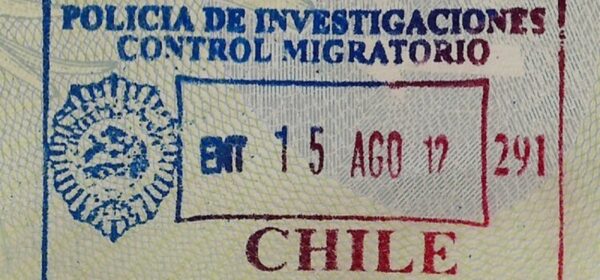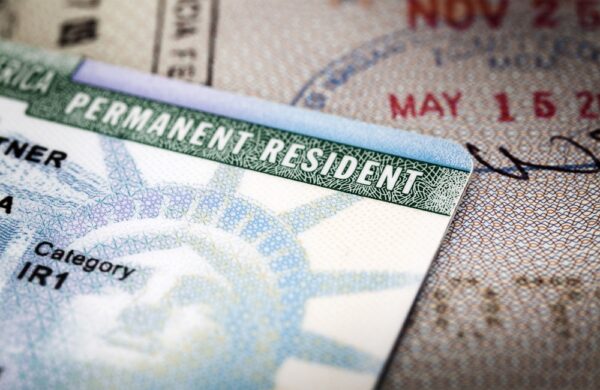Do you want to be a part of Thailand's rich culture and thriving economy? A Thailand work visa is the key! Thailand is a popular travel destination that draws visitors from all over the world because of its vibrant culture, beautiful beaches, mouthwatering food, and affordable cost of living. But while obtaining a short-term vacation visa is quite simple, obtaining a work permit requires a little more preparation.
We will help you with the basic steps to getting a Thailand work visa and permit. We will explain the various types of work visas in Thailand, their requirements, and the application process. Be confident as you embark on your job adventure in Thailand. There are many opportunities in this beautiful country; keep reading to turn your career goals into reality.
Benefits of Working in Thailand
Medical treatment benefits
An insured individual is entitled to non-occupational injury or illness compensation benefits if they have paid contributions for at least three months within the 15 months preceding the date of receipt of medical services. The insured is entitled to free medical treatment for non-occupational accidents or sickness at the registered hospital identified on their Social Security card.
Child Allowance
An insured parent who has paid contributions for at least 12 months within 36 months prior to the month of entitlement to benefits is granted a monthly child allowance of 800 baht per month for a maximum of three children. The child must be legitimate, excluding adopted or given-up-for-adoption children, and must be no older than six years.
Exploring the Culture
Thailand is well known for its magnificent temples, year-round festivals, and rich cultural legacy. A foreign citizen living in Thailand has the chance to learn about the customs, develop new, deep relationships with locals, and experience the friendly hospitality of Thailand firsthand. Expats can also see all the amazing attractions, including waterfalls.
Low Cost of Living
Working in Thailand has the added benefit of allowing you to live a very fulfilling life on a shoestring budget. Even if prices have gradually increased due to inflation, a plate of rice with a variety of sauces or a bowl of noodles is still incredibly inexpensive when compared to most Western nations. Housing options range from the cost-effective options of living in a tiny apartment to the more abundant options of renting a larger apartment. Thailand has the cheapest cabs in the world, and if you choose to stay in the city, the BTS and other similar rail lines are well-connected and can save you a lot of money on transportation.
Adaptability
Living and working overseas demonstrates your capacity to adjust to various locations and situations easily. Exposure to new concepts and approaches to projects can help you see some problems from a different angle. Future employers will value your overseas experience because they know you can handle the numerous special obstacles that come with the job.
Basics of Thailand Work Visa
Thailand's work visa is the ‘B' category of non-immigrant visas in Thailand. If you want to go to Thailand for work purpose c you must apply for the visa. However, even though the Category “B” Non-Immigrant Visa is given for employment purposes, you cannot work solely on the basis of the visa. You must obtain a work permit and an extension of stay after you arrive in Thailand in order to be permitted to live and work there.
Who Needs a Thai Work Visa?
Any foreign national wishing to work in Thailand must obtain a Thai work visa from their home nation. Even individuals who are exempt from Thai tourist visas must obtain a work visa because the application for a work permit and extension of stay requires a Thai non-immigrant visa.
Types of Thailand Work Visas
Thailand offers four major categories of work visas. These are:
Non-immigrant visa: This category comprises the regular business and work employment visa.
Smart visa: This is a new license for business owners and executives.
Long-term resident visa: This is a more permanent visa for specific immigrant groups, such as highly qualified applicants and professionals.
Diplomatic and official visa: This is for Diplomats and those visiting Thailand for official business.
Thailand Work Visa Requirements
Here are the documents required for a Thailand work visa application:
- Valid passport with a minimum 6-month validity.
- Two passport-sized photos.
- Health insurance.
- Completed work visa application form.
- Proof of sufficient financial resources (e.g., bank statements)
- Confirmed travel tickets.
- Employer's letter of appointment.
- Copy of work permit or a letter of approval from the Ministry of Labour.
- Education certificates.
- Police clearance certificate.
- Working address in Thailand.
Thailand employers that want to employ a foreign national must also fulfill some requirements. These include:
- The employer must be legally registered in Thailand.
- The employer must have successfully registered for VAT and applied for a tax ID.
- The employer must show a minimum paid-up capital of 2 million Baht per foreign employee.
- Thai employees must remain at a 4:1 ratio to foreign personnel.
- Each company may only have ten work permits.
How to Apply for a Thailand Work Visa
Before traveling, visa applicants must apply for a Thailand Work Visa at one of Thailand's diplomatic missions (an Embassy or Consulate) in their home country or a neighboring nation.
1. Contact the Thai Embassy or Consulate where you plan to apply, or if one is accessible, go to their website. Schedule a meeting with a consular officer and find out the working days, hours, and preferred method of payment for the Thai visa fee.
2. Compile the paperwork needed to obtain a Thai work visa.
Send in your visa application and supporting documentation. You can submit to the appropriate Embassy or Consulate by:
- Going in person
- Through the post with a self-addressed envelope
3. Await the processing of the application.
4. Pick up the visa and passport. You will receive them back by mail if you applied by mail.
You must enter Thailand within the time frame specified on your Thailand work visa if it is granted; otherwise, it will expire. If you are currently in Thailand on a tourist visa, you might be able to switch to a non-immigrant visa “B” category through the Thai Immigration Department Offices. But this isn't always a good choice.
Thailand Work Visa Fee and Processing Time
The processing of your application typically takes ten days after you submit it. Single entry work visa fee costs 2,000 Thai Baht ($65), while multiple entry costs 5,000 Thai Baht ($164). Depending on the local currency and the mode of payment, fees may vary slightly between countries. While some offices might only accept cash, others might ask that you pay via bank transfer.
Work Visa Duration and Extension
The duration of a single-entry non-immigrant visa is three months. However, multi-entry visas can last up to a year. There's also a three-year multi-entry visa (for business purposes) if you must make return visits to the country for a long time. You are not permitted to look for work while in the nation with this visa, and each visit is limited to 90 days.
The Thai Immigration Bureau is where you can apply for an extension of your non-immigrant work visa. Visa extensions are normally allowed for up to a year but can be longer and are at the discretion of the agency. Regardless, you have to visit the bureau at least once every ninety days while you are there.
Thailand Work Permit
The next step after obtaining a Non-Immigrant B Visa is to secure a work permit, which will enable you to work lawfully in Thailand. It is important to remember that working without a legal work permit can lead to deportation and heavy fines. To qualify for a Thai work permit, you must be employed by a company that satisfies requirements established by the Ministry of Labor, including:
- The minimum registered capital of the corporation is two million Thai Baht.
- The company has paid at least 5,000,000 Thai Baht in income tax to the Revenue Department over the last three years.
- The company is an export business and has had a foreign remittance of at least 3,000,000 Thai Baht in the previous year.
- The company has at least 50 Thai employees.
Furthermore, the maximum number of foreign workers that a business can hire is determined by its capital. A Thai Work Permit is linked to a particular job and employer. If you wish to switch employers or if the address of your workplace changes, you must contact the Ministry of Labor and make the required changes.
Thai Work Permit Requirements
In order to apply for a Thailand work permit, you and your employer need to have a number of supporting documents, including:
- Your Thai Work Visa
- Your passport
- Your academic degrees and certificates
- Your Letter of Employment / Work Contract
- A Health Certificate
- Any relevant certificates and licenses
- Your CV/Resume
- Proof of accommodation in Thailand
- Three pictures of you with 5 x 6 cm dimensions
Travel documents from your native country must be translated into Thai and validated before being submitted. The company's Managing Directors must sign and stamp each page of the paperwork your employer presents with the corporate seal.
How to Apply
Once your Non-Immigrant (Work) Visa has been issued, you or your employer must apply for a Thailand Work Permit at the Ministry of Labor. You and your employer must have the relevant documentation to support your application. The work permit application must be filed before the expiration of your visa and before you begin working.
The Ministry of Labor typically takes seven days to process your work permit after you submit your application. You must return to the Ministry of Labor to pick up the work permit and complete the required paperwork when a decision has been made. After obtaining the work permit, you must always have it with you in case immigration officers stop by your place of employment and request to see it. You risk being punished if you are not with your permit.
Duration of Thai Work Permit
The maximum term for a Thai work permit is one year. If your job contract is for less than a year, your work permit will be given for the same period.
Extension of Work Permit
If your Thai work permit is only valid for a year, you can request to have it extended for an additional year as long as you meet the requirements (e.g., a legitimate work contract, a sufficient wage, etc.).
Conclusion
Securing a Thailand work visa requires careful planning and preparation. But with the right documentation and employer support, foreigners can successfully navigate the process and begin their Thai work adventure, immersing themselves in the country's rich culture and vibrant lifestyle. Thanks for reading!
















